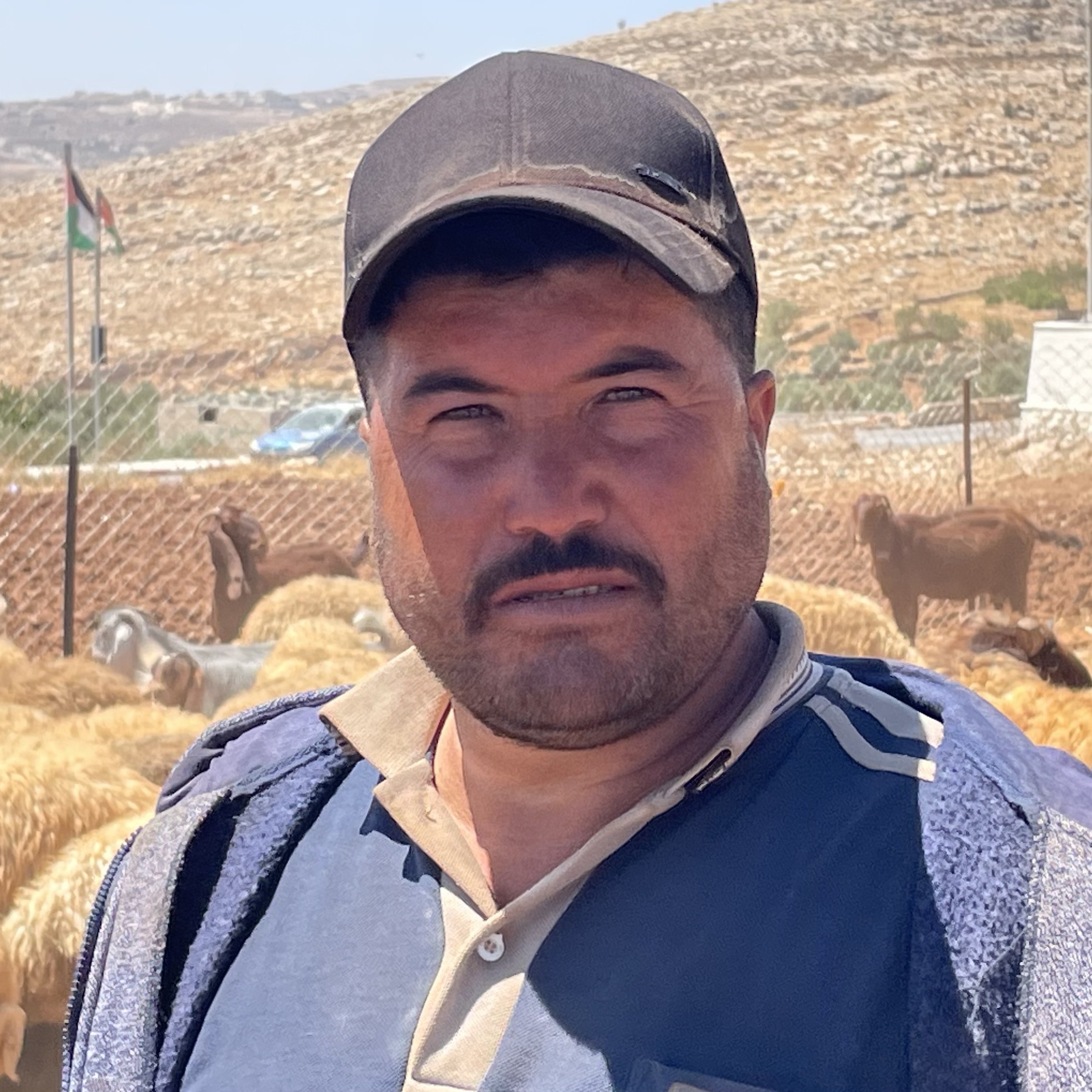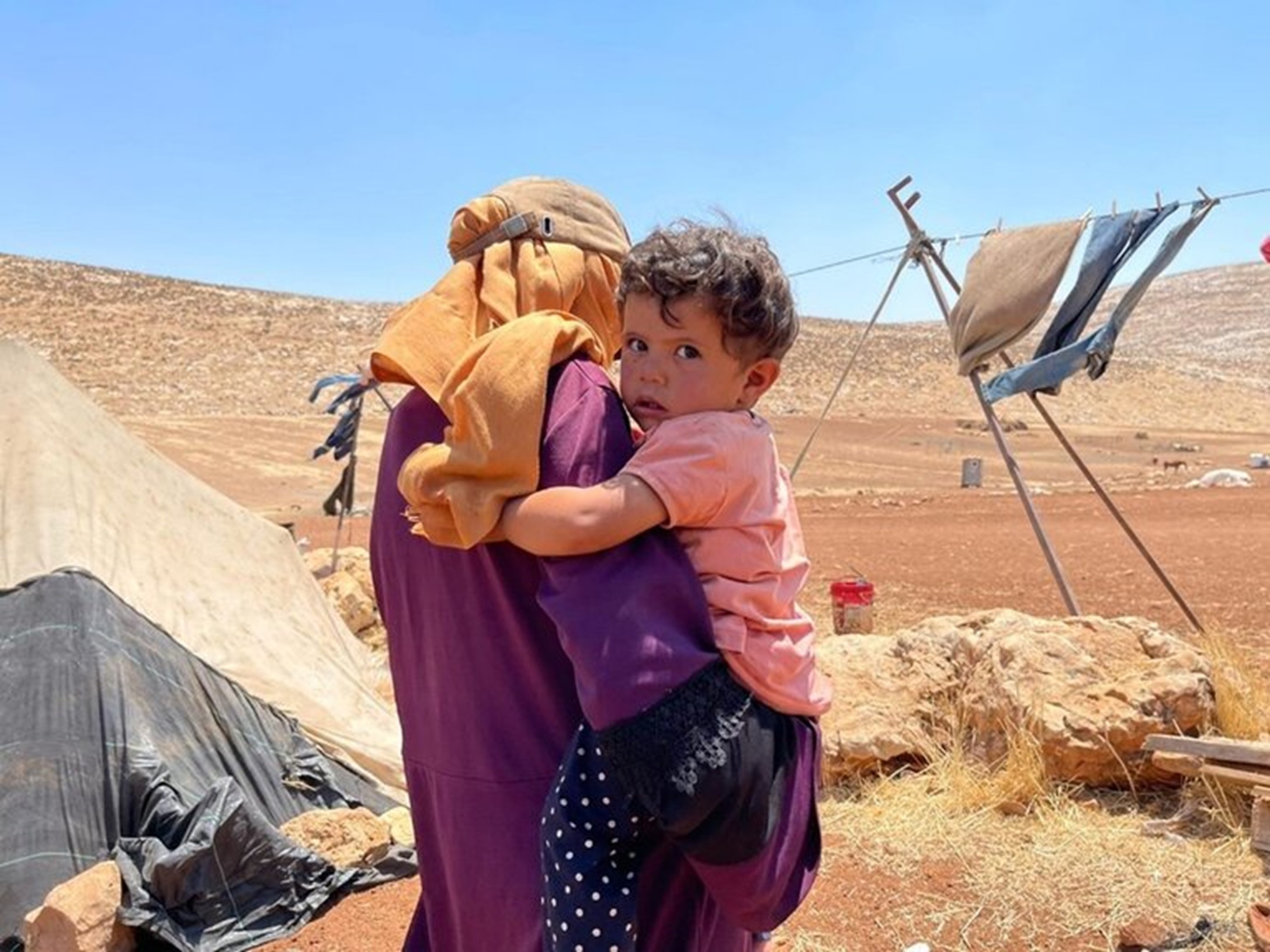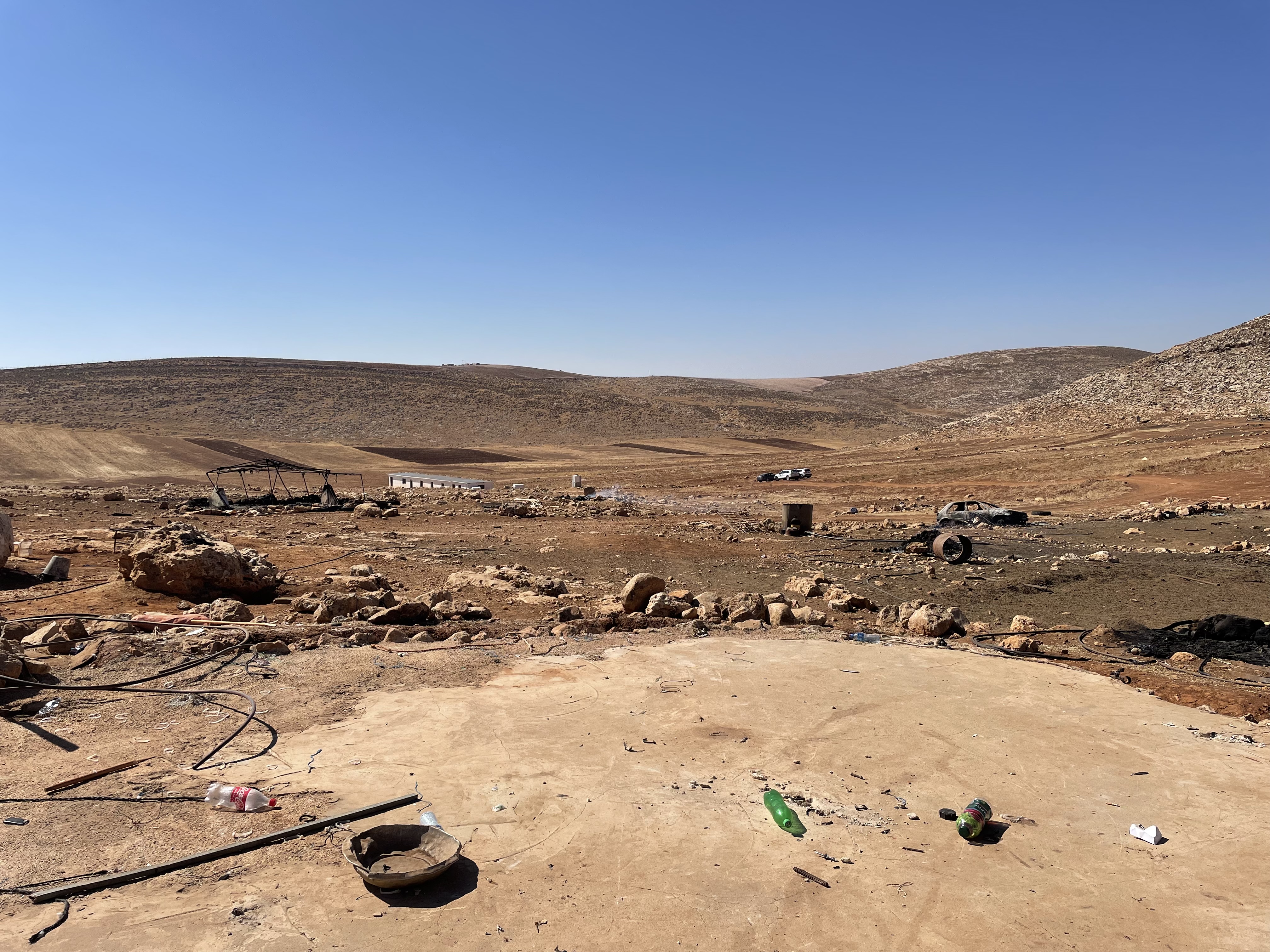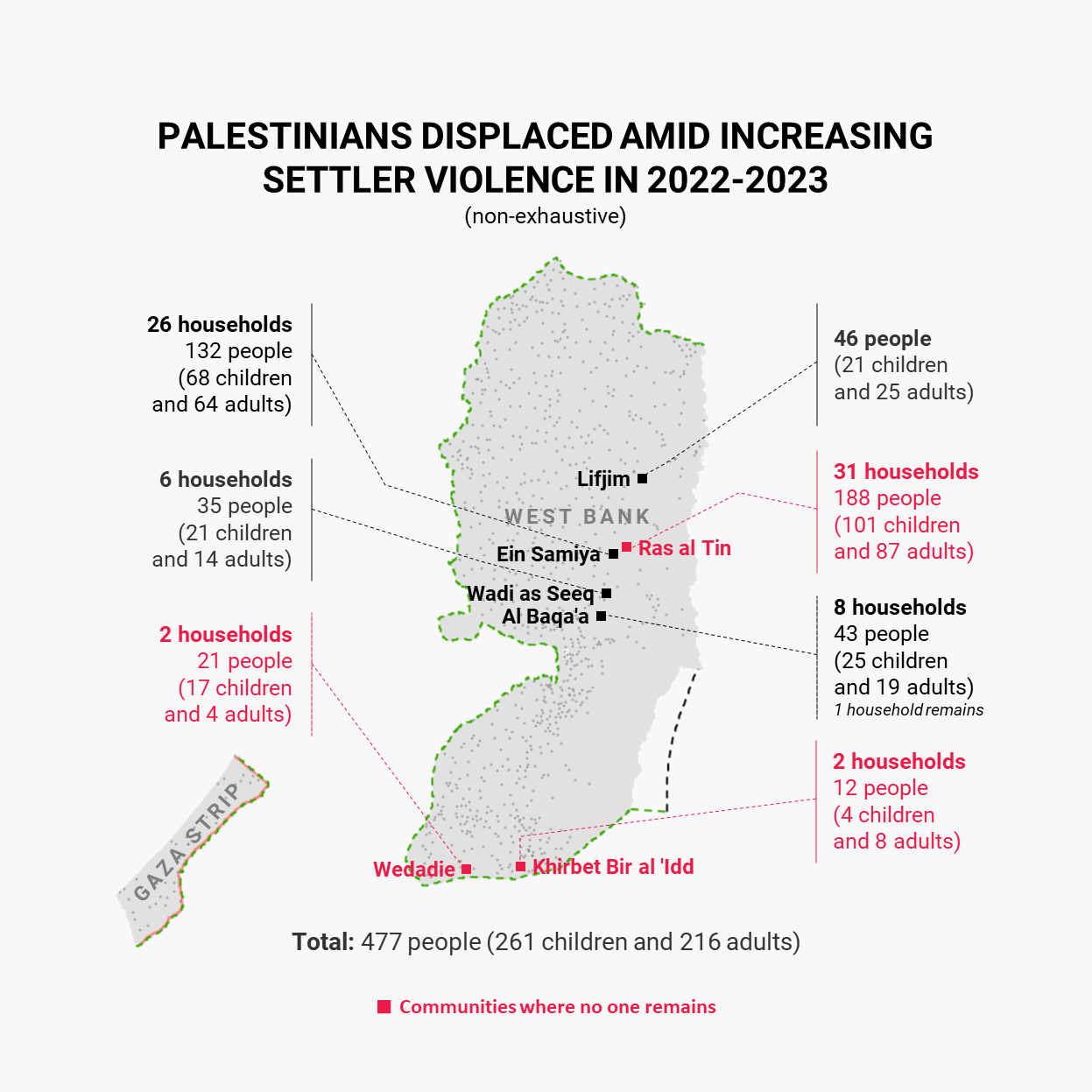Ras al Tin’s remaining 89 residents leave amid increasing settler violence
On 8 August, the remaining families of Ras al Tin, a herding community in Area C of the central West Bank, dismantled their homes and properties, and left for safer places. They were among 89 neighbours of 12 households who left the community over the past few days, citing violence and intimidation by Israeli settlers and shrinking grazing land as the main reasons. Among them were 39 children.
The community now stands empty.
Last year, 100 Palestinians left Ras al Tin, citing similar reasons. On the eve of their departure, the whole community comprised about 35 households, including 240 people, of which 150 were children. Their homes were located in five separate, adjacent locations.
This herding community’s displacement in July 2022 and August 2023 is largely a result of an accumulation of settler violence, demolitions, harassment, and other coercive measures. Families now rent homes in adjacent villages where they feel safer. To preserve their traditional livelihoods, some households have had to split, with certain members staying in separate locations to guard their herds.
Over the years, OCHA has documented in detail the coercive practices that put pressure on people to leave certain areas. Among these practices are the demolition or seizure of homes and livelihood materials, excessive use of force by the Israeli military, settlement expansion, physical assaults, and vandalism. Such practices have resulted in physical injuries, psychological harm, and loss of livelihoods and perpetrators are rarely held to account.
Shortly after such incidents, humanitarian actors assess the needs of affected families and provide assistance, including help to sustain their livelihoods.
However, what people more urgently need is protection. To that end, OCHA advocates a halt to demolitions and confiscations, an equitable planning and zoning regime for Palestinian communities, and accountability for violent settlers and members of Israeli forces who have used excessive force.
Earlier this month, the United Nations and humanitarian partners launched an assessment of the urgent humanitarian needs of sixty Palestinian herding communities across the occupied Palestinian territory directly affected by an increase in Israeli settler violence and measures taken by Israeli authorities.
In the first six months of 2023, the UN recorded 591 settler-related incidents resulting in Palestinian casualties, property damage, or both. This is a 39 per cent increase in the monthly average when compared with 2022, during which the highest number of settler-related incidents since the UN began recording such data in 2006 was reported.
Ras al Tin is one of multiple communities across the West Bank, particularly in Area C, where the humanitarian community has warned of a coercive environment that may result in forcible transfer. Since 2022, at least 478 Palestinians, including 257 children, from seven such communities have been displaced in similar circumstances, a non-exhaustive compilation of figures by the United Nations indicates. Three of those communities are now empty, including Ras al Tin.














